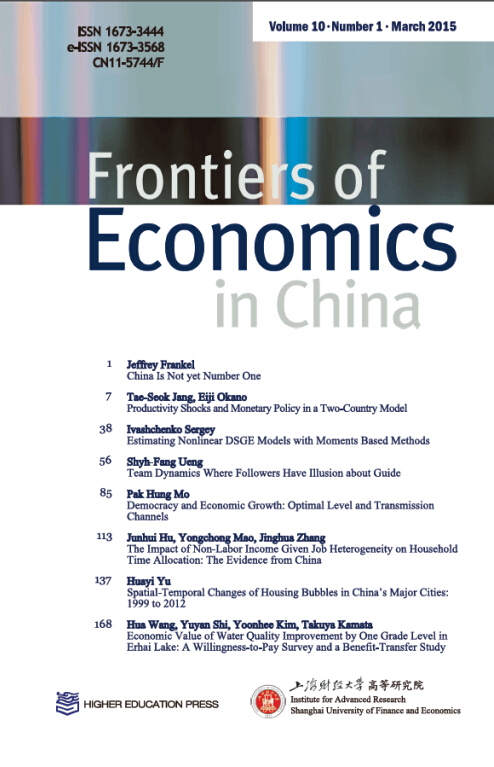Can a Government Initiate Enterprise Reform to Improve Efficiency? A Cross-Section Analysis of the Chinese Pharmaceutical Industry
IF 1.5
4区 经济学
Q2 ECONOMICS
引用次数: 0
Abstract
This paper examines the effects of state-owned enterprises (SOE) privatization, implemented by the Chinese government in the 1990s, on enterprise efficiency for a sample of non-privatized SOEs and privatized ex-SOEs. The study calculates input-oriented DEA meta-frontier efficiency scores, after accounting for heterogeneity in technology across groups. These scores are used to test whether or not one groupi¯s technology dominates the other. A measure of additional input saving is also provided if these enterprises have access to unrestricted meta-technology. The analysis of the Chinese pharmaceutical industry reveals that privatization has not improved enterprise efficiency, at least in the short run. Almost 56% of inputs could be proportionally saved if these privatized ex-SOEs had been efficient, relative to the meta-production technology while non-privatized SOEs could proportionally save only 51%. Privatized ex-SOEs had less ability to access to meta-technology. This finding could be explained by subsequent observations that China, at the time of our analysis, did not have well-established intellectual property rights and formal drug approval procedures; these two factors are important driving forces for developing joint ventures with foreign investors to gain additional capital funding and technology transfer. Broadly speaking, our results are consistent with the subsequent shakeup in the Chinese pharmaceutical industry.政府能否启动企业改革以提高效率?中国医药工业的截面分析
本文以未私有化的国有企业和私有化的原国有企业为样本,考察了中国政府在20世纪90年代实施的国有企业私有化对企业效率的影响。该研究计算了以投入为导向的DEA元前沿效率得分,在考虑了不同群体的技术异质性之后。这些分数用于测试一组的技术是否优于另一组。如果这些企业能够获得不受限制的元技术,还可以节省额外的投入。对中国医药行业的分析表明,私有化并没有提高企业效率,至少在短期内是这样。如果这些私有化的前国有企业相对于元生产技术是有效的,那么可以按比例节省近56%的投入,而非私有化的国有企业只能按比例节省51%的投入。私有化后的前国企接触元技术的能力更弱。这一发现可以通过随后的观察来解释,即在我们进行分析时,中国没有完善的知识产权和正式的药物审批程序;这两个因素是与外国投资者发展合资企业以获得额外资金和技术转让的重要动力。总的来说,我们的结果与随后中国制药行业的重组是一致的。
本文章由计算机程序翻译,如有差异,请以英文原文为准。
求助全文
约1分钟内获得全文
求助全文
来源期刊

Frontiers of Economics in China
ECONOMICS-
CiteScore
1.20
自引率
0.00%
发文量
373
期刊介绍:
Frontiers of Economics in China seeks to provide a forum for a broad blend of peer-reviewed academic papers of economics in order to promote communication and exchanges between economists in China and abroad. It will reflect the enormous advances that are currently being made in China in the field of economy and society. In addition, this journal also bears the mission of introducing the academic achievements on Chinese economics research to the world.
 求助内容:
求助内容: 应助结果提醒方式:
应助结果提醒方式:


